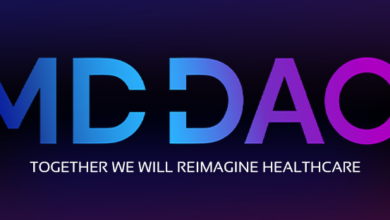Decentralized Social Media

The way we think about privacy and online content ownership is being transformed by social media, evident in the increasing social and political discussions and debate about social media, specifically: what defines it, how does it work, and who has responsibilities and accountability therein? Because of the growing centralization of social media in the major companies and brands we’ve come to know (and love), cryptocurrency and its value on decentralization have hastened debates about online censorship, privacy, data protection, and monetization of creators.
As society wrestles over Facebook, TikTok, and Twitter, distributed ledger technology (DLT) like blockchain is being used to power social media networks that are “decentralized” or blockchain-based. As a result, unlike centralized networks (The Facebooks, Twitters, and Instagrams), all activity on these platforms is permanently recorded on a decentralized protocol that no central authority can manage or supervise.
Decentralizing Social Media
We’re using some words here that are fairly new in society and certainly not well known by most. Decentralization refers to a system of interconnected, independent, privately owned elements that work together to provide private, secure, and more stable solutions; as a result, online or in cryptocurrency, where we’re seeing decentralization accelerate, things we use (like a website or app) are less controlled or controllable.
Something being built and run by a company or a government is centralized given a clear ownership and the ability of that central ownership to manage, regulate, and make decisions about that which is centrally operated. Alternatively, something built by a collective, a collaboration, in open source, with many contributing to parts of the whole without anyone in control of what it is or becomes, is decentralized.
There are advantages and disadvantages to being decentralized or centralized.
- Companies thrive thanks to their clear direction and intentional investment while on the other hand people are accountable and can be influenced or controlled
- Decentralized organizations can be more innovative, collaborative, and beneficial to society by enabling access and opportunity for everyone, and without a central authority, they’re resistant to censorship, regulation, or localized governance.
Due to the company-centric nature of most software, apps, and websites, today, their focus is naturally in generating money or operating for profit; as such, traditional social networks bias information toward that which drives revenue, while retaining users, and that leads to more focus on tracking and optimizing what people see and do – not necessarily a bad thing though as we’ve seen, it tends to result in more entertainment, posts in echo chambers, and politically biased experiences, than information and education, as a result of the attention-grabbing commercial material to which people are exposed.
When a social media network is not controlled by a central authority, individuals are free to express themselves as they see fit, without retribution from the network’s administrators or regulations; though with that of course, means all manner of content.
The latest controversial problem with social media networks are privacy laws and the selling of user data. Decentralized social media platforms mitigate these issues through encryption built within blockchain technology improving overall user privacy and data security. Though to be clear, in the absence of administrators, users can submit inaccuracies or objectionable material that cannot be removed. Pros and Cons, with innovation and change comes new opportunity as well as the challenges that arise from new circumstances.
The Rise of DeSo
Decentralized social media is a reality. This year, alongside a few endeavors to decentralize social media, venture capital investors Sequoia Capital, Alexis Ohanian, Social Capital, and a16z, among others, introduced DeSo.
DeSo (formerly known as CLOUT in the Blockchain.com Exchange) is well summarized in Amadeo Pellicce’s great article highlighting DeSo’s mission : to transform social media into an open utility for everyone, rather than a privately owned monopoly benefiting a few.
Nowadays, posts made to platforms like Instagram, Facebook, TikTok, and Twitter belong to the companies hosting those platforms, not the people who made them. And as a consequence, the monetary gain flows to and through these private corporations, if through then to other businesses involved with the network – the creator is rarely if ever paid or valued more (than using the site for free) for the great content and experiences they produce on the network.
Instead of using a private network to store its data, DeSo uses a public blockchain, allowing anybody to operate a node and publish their own curated feed.
“At a high level, the inspiration for DeSo comes from the fact that today when you make a post on Twitter or Instagram, that post doesn’t really belong to you. It belongs to a private corporation. And what that means is that your content, and more importantly all the money that’s made off of your content that should belong to you as a creator, actually is being taken by these companies. Not only that but because these companies have everyone’s data in a big pool that only they control, they become the singular place where everyone goes to for news and entertainment. They’re keeping all the monetization that really should be shared with the creators, but they also effectively control all public discourse in a highly centralized fashion.”
– BitClout and DeSo Founder, Nader Al-Naji, in Fast Company
According to deso.org, the Decentralized Social Blockchain is supported by the non-profit DeSo Foundation, whose broad mission is to support the decentralization of social media. The foundation is led Al-Naji, with a $200 million treasury behind it to support its mission.
What Does This All Mean for the Future of Media?
The better question is… how is today’s media doing?
The phrase “fake news” is not new to most modern Americans and people all around the globe. Due to the data rightly available, and resource allocation and even exploitation to favor revenue streams and keep users engaged, contemporary social networking sites passively and actively contribute to the propagation of false news such as making an unreliable piece of information worth reading or forwarding a political agenda.
I’ve explored this, the “Impossible situation of Facebook,” recently, and MediaTech Ventures is intimate with efforts to tackle News Media bias, monetization challenges, and the application of the blockchain (and NFTs) to everything from music, video, and books, to venture funding and investing in startups through cryptocurrency. What’s clearly evident as society wrestles with changing expectations and the realities of technology, is that a great disruption is likely a good thing:
- Today’s social networks hide truths (often unintentionally) from users, despite their desire to know it
- Technology can’t ensure safety online
- Fake news is influencing people’s decisions, whether it’s to buy something or vote for a new leader.
Modern social networking sites’ monopolistic tendencies may best be addressed by decentralized social media. To put it simply, you can’t just ask people to lay off Facebook and deactivate their account and transfer to a new platform; while you might not like the experience or even have concerns with how it works, 3,000,000,000 people being there makes it a a place where most people will remain simply because social media means being connected to others. An alternative more compelling than videos, live voice, or messaging is the key to meaningful change; the best way to do that might be through decentralized social media – where people retain their community and content while developers and entrepreneurs of all walks, can create experiences anew upon infrastructure no one controls.
What Can this Do for Startups?
With the rise of decentralized social media, and the DeSo blockchain in particular, entrepreneurs, creators, and developers can work not only on these experiences that are emerging, they can develop their own projects or startups built upon work that has been done. Many networks, other blockchain based networks, already exist and are popular in their own ways:
- Sapien favoring privacy
- Mastadon where you can build your own network and site
- Steemit rewarding content produced
What we’re looking at, in MediaTech Ventures, is how these technologies and networks can create for you access, resources, and connections, that today can be challenging to get when/where social media is centralized (and controlled).
One way we’re doing that, is by looking at NFTs as a way to help introduce blockchain based projects to investors. Beyond our incubator, to which you should apply if you really want to work together, we’ve kicked off a pitch series with CloutForum and issued 10 NFTs as seats to a live show promoting work on decentralized social media, with a series of guest investors who will share their reactions, advice, and perhaps a check. We’re going to wrap up the issuance of those NFTs on Friday, so if you’d like to get on the air: bid on an NFT here.
Technology is ever-evolving, and along with it, media. With new platforms on the horizon that are based on a decentralized blockchain, what we can do now is read, study, and learn. We want to explore more of the future so we asked the community, here – what are the features or platform that will be the next generation of Social Networking?
DeSo is a new layer-1 blockchain built from the ground up to scale decentralized social applications to one billion users – more at deso.org








I don’t normally get into this space often, but I’m in talks currently with an NFT project, and one of the big fundamentals that is discussed is the importance of a decentralized community, structure, and implementation.
It adds complicating factors to investors and the raising of capital.
Patrick Dewey it does, add complicating factors, and new opportunities. We’re in the think of working through all that, big picture, with VC, Private Equity, and what it all means to investing in startups, or property. Amazing times with massive changes on the horizon!
In terms of technology, decentralization optimizes for load and reduces latency.
The idea of decentralization strikes fear in the rich and those in power. And, has since the days of Arpanet, when what was intended to share compute cycles across Universities, quickly saw the majority of the bandwidth/traffic turn into the first ‘social community’ creating a bit of fear, especially because of the political turbulent times, fear that the ‘elite liberals’ at universities had a way to communicate uncensored with each other. And, that it would be very difficult to shut down due to the decentralized nature of the system.
Decentralized social media has been attempted before. The question is, why is this time different? Nonetheless, I believe social media in it’s current iteration will be phased out relatively soon. Facebook may be turned into something like ancestry for historical research. The current iteration of social media is kind of like smoker parents telling their kids not to smoke. They’re addicted, but the next generation might not be.. Because what generation wants to be like their parents.